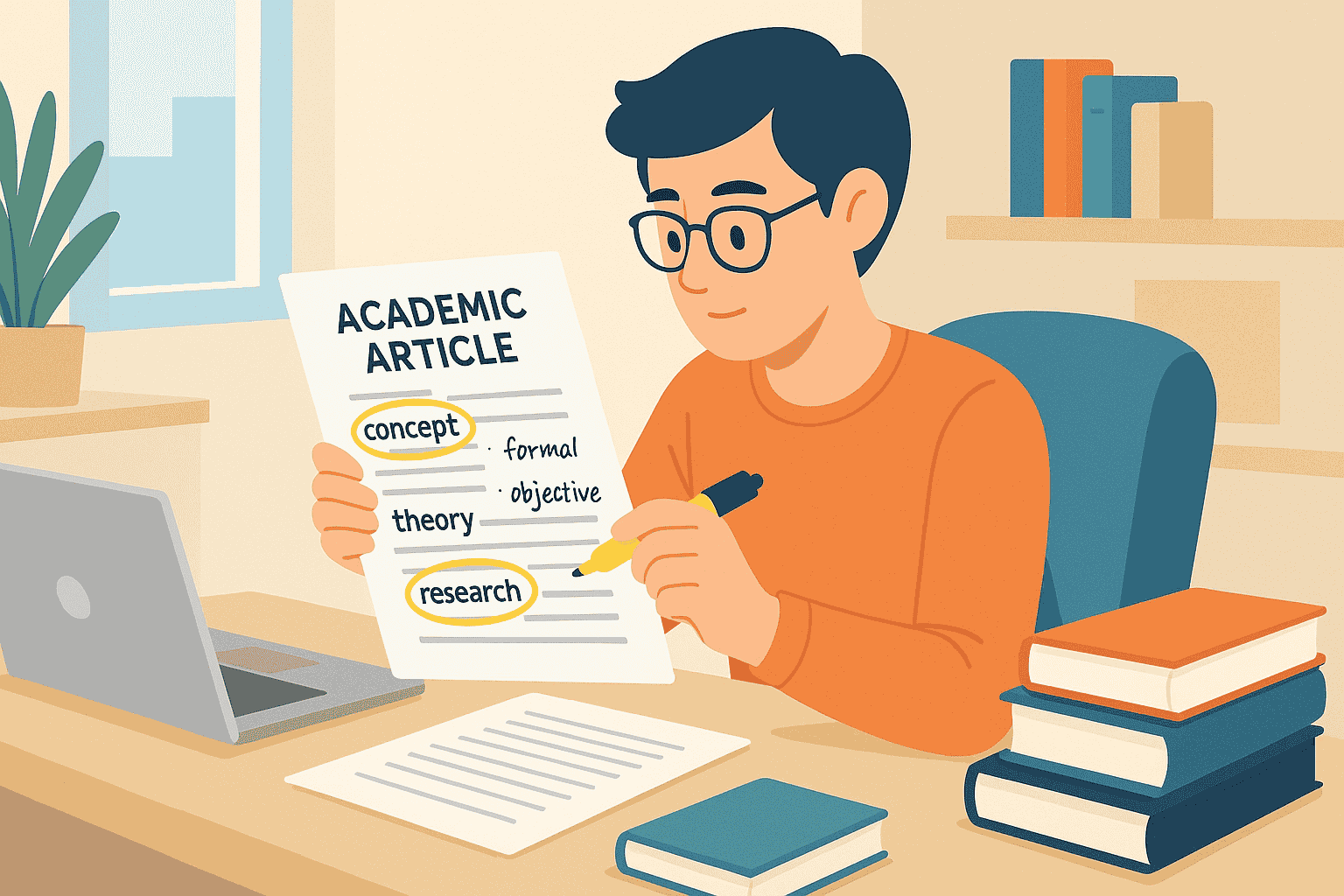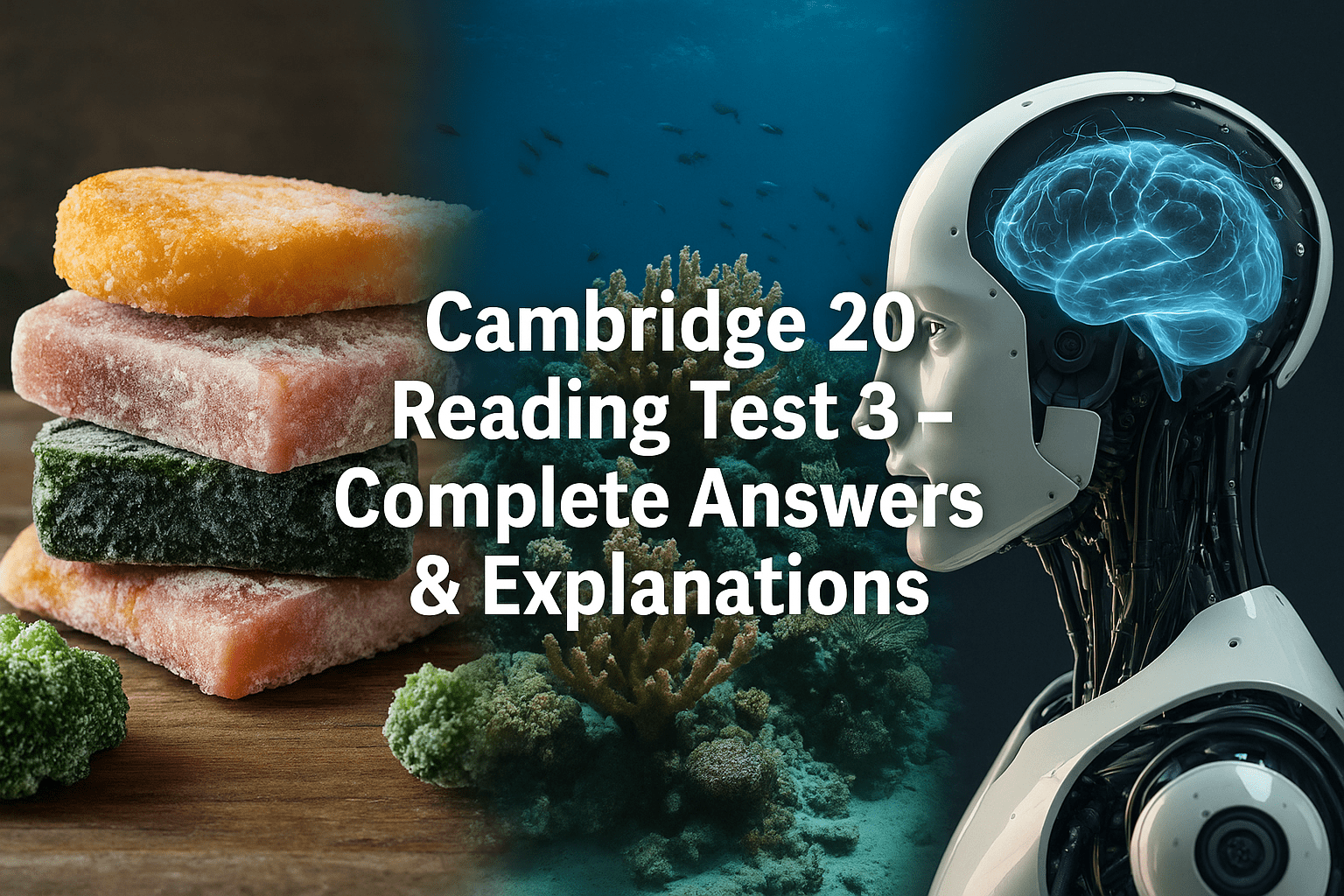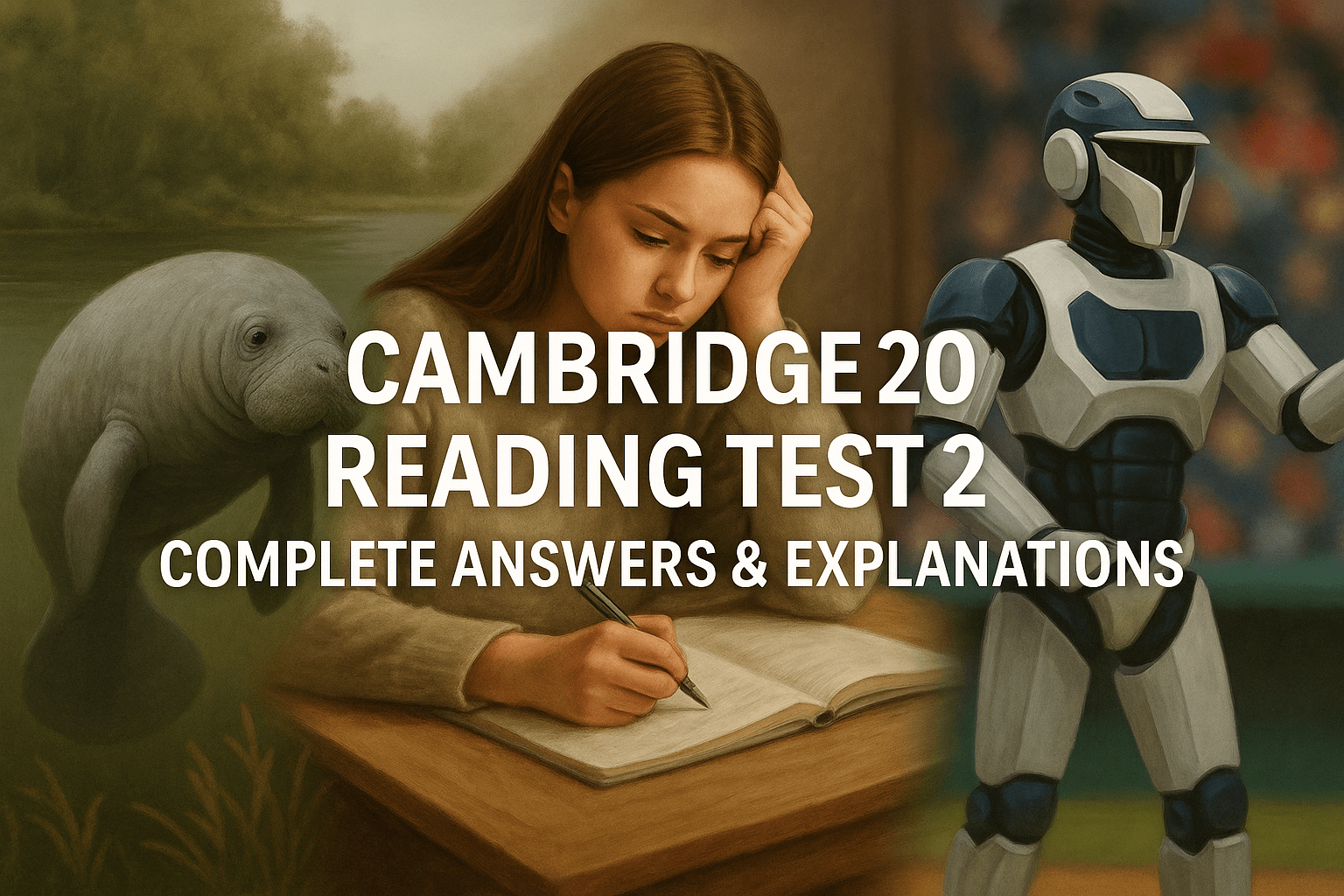If you want to achieve Band 7–9 in IELTS Reading, one of the most effective strategies is mastering IELTS reading academic words.
IELTS reading passages are often adapted from academic sources, meaning they are rich in formal vocabulary. If you don’t recognize these words, even if your grammar is strong, you may struggle to understand the text and answer questions accurately.
As a global IELTS teacher, I’ve seen students go from Band 6 to 8+ simply by focusing on academic vocabulary. In this blog, I’ll guide you through:
-
Why academic words are essential for IELTS Reading success
-
A list of 100 academic words organized by theme
-
Tips to learn and use these words effectively in real tests
-
How to integrate them with IELTS Reading Vocabulary strategies for maximum results
Why Academic Words Matter in IELTS Reading
IELTS Reading passages (both Academic and many GT passages) often include formal, topic-specific vocabulary. These words appear frequently in:
-
Scientific reports and research
-
Academic articles and journals
-
Historical or cultural essays
-
Environmental and social studies texts
Here’s why these IELTS reading academic words are critical:
-
They Improve Comprehension
Recognizing formal words like mitigate, accumulate, or allocate allows you to understand complex sentences without guessing. -
They Speed Up Answering
When you spot familiar words or their synonyms, you can quickly match questions to the passage instead of rereading multiple times. -
They Help Avoid Traps
Many tricky answers rely on paraphrasing. Knowing academic vocabulary prevents confusion when the question uses a synonym instead of the exact word in the passage.
100 Academic Words for IELTS Reading
I’ve organized these words into 10 themes, so you can study them in a structured way. Each theme reflects high-frequency topics in IELTS Reading.
1. Environment & Climate (10 words)
-
Sustainable
-
Emission
-
Degradation
-
Habitat
-
Biodiversity
-
Renewable
-
Conservation
-
Contamination
-
Erosion
-
Deforestation
IELTS Tip: These words often appear in cause-effect passages. Example: “Deforestation accelerates soil erosion.”
2. Science & Technology (10 words)
-
Innovation
-
Mechanism
-
Hypothesis
-
Variable
-
Data
-
Experiment
-
Analysis
-
Device
-
Observation
-
Evidence
IELTS Tip: These are common in research-based texts. Recognize them in Matching Headings and Completion questions.
3. Health & Medicine (10 words)
-
Diagnosis
-
Treatment
-
Therapy
-
Immunity
-
Infection
-
Nutrition
-
Deficiency
-
Prevention
-
Rehabilitation
-
Contagious
IELTS Tip: Be ready for synonyms like therapy → treatment or infection → disease.
4. Education & Learning (10 words)
-
Curriculum
-
Literacy
-
Assessment
-
Methodology
-
Lecture
-
Assignment
-
Discipline
-
Qualification
-
Research
-
Institution
IELTS Tip: Academic passages often describe research studies or teaching methods, so these words appear frequently in Matching Features or Summary Completion.
5. Society & Government (10 words)
-
Policy
-
Legislation
-
Authority
-
Regulation
-
Democracy
-
Citizenship
-
Migration
-
Infrastructure
-
Administration
-
Public service
IELTS Tip: In T/F/NG questions, watch for policy-related paraphrases: law → regulation → legislation.
6. Economy & Business (10 words)
-
Revenue
-
Investment
-
Inflation
-
Profit
-
Consumption
-
Trade
-
Market
-
Demand
-
Subsidy
-
Competition
IELTS Tip: These words often appear in passages about global economy or trade, and may be paraphrased in Matching Information questions.
7. History & Culture (10 words)
-
Artifact
-
Heritage
-
Civilization
-
Archaeology
-
Tradition
-
Chronicle
-
Era
-
Dynasty
-
Architecture
-
Legacy
IELTS Tip: These terms appear in descriptive or narrative passages about history or culture.
8. Transport & Infrastructure (10 words)
-
Commute
-
Network
-
Traffic congestion
-
Route
-
Intersection
-
Pedestrian
-
Infrastructure
-
Terminal
-
Vehicle
-
Freight
IELTS Tip: Look for location and movement descriptions in Diagram or Map Completion tasks.
9. Energy & Natural Resources (10 words)
-
Fossil fuels
-
Renewable energy
-
Extraction
-
Mining
-
Reservoir
-
Scarcity
-
Exploitation
-
Drilling
-
Hydroelectric
-
Solar
IELTS Tip: Completion tasks often require filling in energy-related terms with correct spelling.
10. Academic Processes & Research (10 words)
-
Allocate
-
Compile
-
Evaluate
-
Interpret
-
Formulate
-
Investigate
-
Publish
-
Refine
-
Submit
-
Conclude
IELTS Tip: These words appear in formal research or academic report passages, often linked to verbs in passive form.
How to Learn IELTS Reading Academic Words Effectively
Memorizing 100 words in isolation isn’t enough. Here’s how I teach my students to absorb and apply these words:
-
Learn in Context
-
Highlight the word in a passage and note its synonym or explanation.
-
Example: “The government allocated funds” → allocated = distributed.
-
-
Create Synonym Families
-
Connect academic words to 2–3 common synonyms.
-
Evaluate → assess → judge
-
-
Use Spaced Repetition
-
Review words every 2–3 days using flashcards or digital apps.
-
-
Practice with Real Passages
-
Use official IELTS resources or British Council to spot words in context.
-
-
Combine with Pillar Vocabulary Training
-
Visit my IELTS Reading Vocabulary for question-type strategies and synonym mastery.
-
Pro Tips for Exam Day
-
Underline keywords in the question and predict academic synonyms in the passage.
-
Don’t panic if you see unfamiliar words. Focus on context and surrounding words.
-
Practice speed + comprehension: the more academic words you know, the less time you’ll spend re-reading.
Final Thoughts
Learning IELTS reading academic words is one of the fastest ways to boost comprehension and answer accuracy in the test.
-
Study these 100 core words by theme.
-
Practice them in real passages from Cambridge books.
-
Combine with synonym recognition and question-type vocabulary strategies.
With consistent practice, you’ll not only understand formal texts better, but also spot answers faster, giving you a strong path to Band 7–9 success.
✅ Pro Tip: Learn 10 words per day, review them in context, and highlight their synonyms. Within 2–3 weeks, your reading speed and accuracy will improve dramatically.






One Response
I have been exploring for a little for any high quality articles or weblog posts in this sort of area . Exploring in Yahoo I ultimately stumbled upon this web site. Studying this information So i am glad to show that I have a very just right uncanny feeling I found out exactly what I needed. I such a lot definitely will make sure to don’t omit this website and provides it a glance on a constant basis.